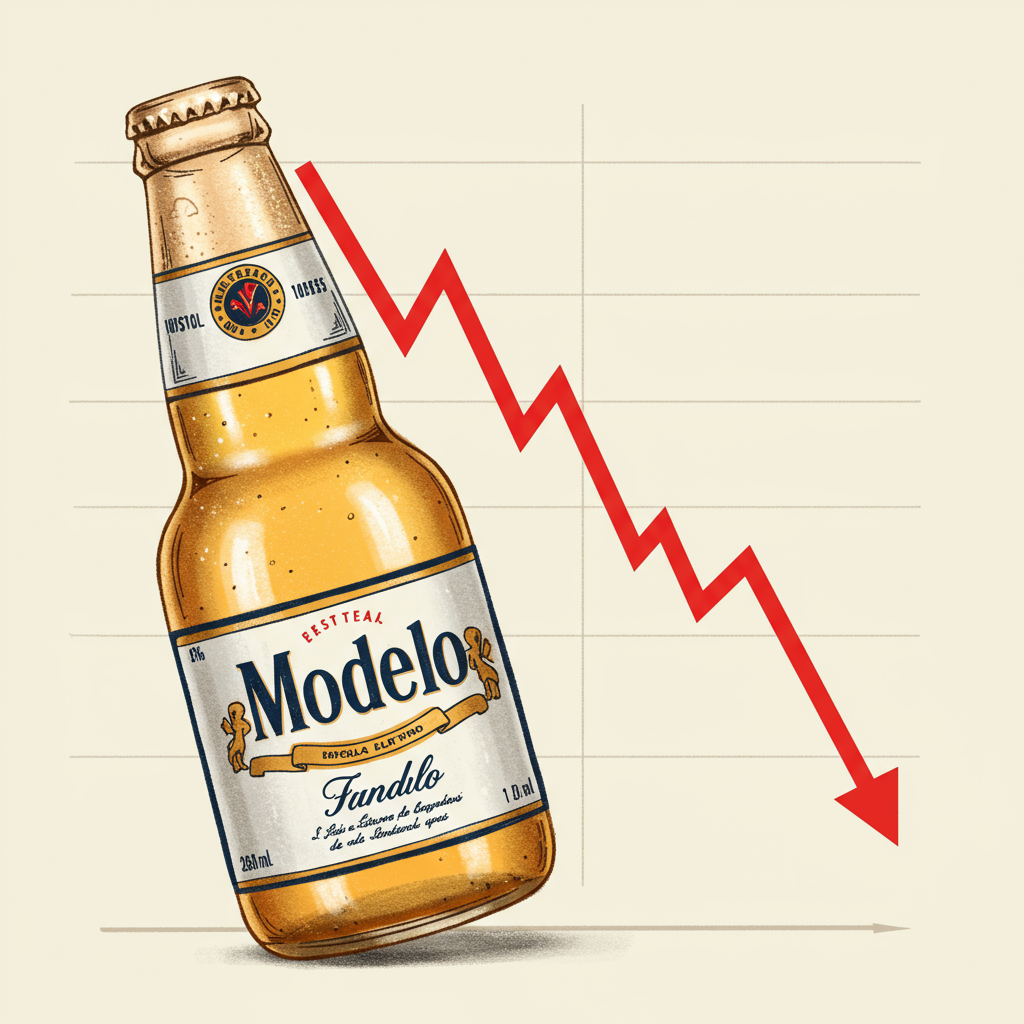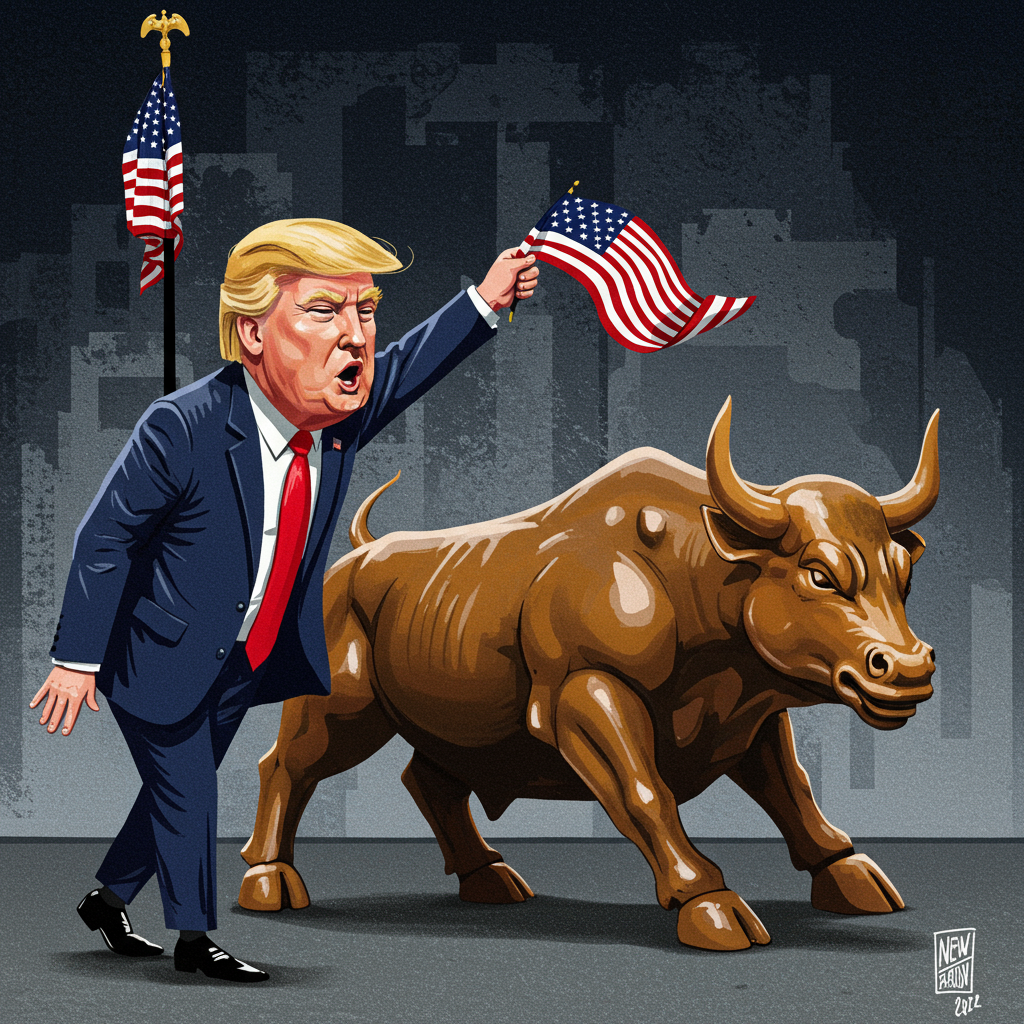Beverage giant constellation brands, known for popular beers like Corona and Modelo, recently reported fiscal first-quarter results that significantly missed Wall Street predictions. The company cited “softer consumer demand” as a primary reason for the slowdown. This performance offers a glimpse into current consumer spending habits and the broader economic climate impacting even established brands.
The parent company saw its revenue decline and profits shrink compared to the same period last year. Analysts were anticipating stronger numbers, highlighting the unexpected dip in performance. This revenue miss underscores the challenges businesses face when consumers pull back on non-essential spending.
Constellation’s Financial Snapshot: A Q1 Miss
For its fiscal first quarter, Constellation Brands announced revenue totaling $2.52 billion. This figure represents a 6% reduction compared to the previous year’s first quarter. It also fell slightly short of the $2.55 billion analysts had collectively forecast.
Adjusted earnings also saw a decline. The company reported $572.9 million, or $3.22 per share. This is down from $654.5 million, or $3.57 per share, earned in the year-ago quarter. Both the total earnings and the per-share amount failed to reach analyst estimates.
Unpacking “Softer Consumer Demand”
Constellation Brands’ CEO, Bill Newlands, attributed the weaker results directly to reduced consumer spending. He described the conditions as “softer consumer demand.” Newlands suggested these challenges were largely influenced by what the company views as “non-structural socioeconomic factors.”
This explanation points to temporary or fluctuating issues rather than deep, fundamental problems with the market or the company itself. However, the specific pressures contributing to this softness are multifaceted. They include broader economic uncertainty affecting household budgets, rising costs from trade policies, and even socio-political factors impacting key consumer groups.
Economic Headwinds Impacting Spending
The slowdown at Constellation Brands isn’t happening in isolation. It aligns with other indicators suggesting consumers are becoming more cautious with their wallets. Recent economic data and reports show a softening in various sectors.
For instance, the US auto market has also seen sales momentum fade after a strong start to the year. That earlier surge was partly driven by buyers trying to avoid potential tariff-driven price hikes. Now, the pace has slowed considerably, with estimated annualized sales rates dropping. This decline is widely attributed to consumers growing worried about the economy. They are hesitating on large purchases.
Average new car prices remain high, adding to the financial strain on consumers. These price points, coupled with economic fears, make big-ticket items less appealing right now. The situation in the auto sector mirrors the caution Constellation Brands is observing in beverage purchases.
Tariff Troubles Add Pressure
Trade policy is another significant factor contributing to Constellation’s challenges. The company faces increased costs due to tariffs imposed by the Trump administration. These include duties on beer imports themselves. Additionally, aluminum tariffs impact the cost of beer cans, a critical packaging component.
Reports indicate the US President has signaled plans to potentially double tariffs on imported steel and aluminum. Such actions directly increase input costs for beverage producers. While Constellation has implemented price increases, these haven’t fully offset the rising expenses linked to tariffs and other operational costs like marketing expenditures. This cost pressure eats into profit margins.
Specific Demographic Impacted
Beyond general economic uncertainty and rising tariff costs, Constellation Brands has identified a more targeted impact on a key consumer segment. The company noted a significant slowdown in beer consumption among its Hispanic customer base. This decline is specifically linked to the effects of immigration crackdowns.
This highlights how socio-political policies can directly influence consumer behavior and market performance for specific products. Brands like Modelo Especial and Corona Extra, which are particularly popular within this demographic, have felt the brunt of this shift. This points to a specific, localized downturn in demand within a crucial market segment for the company.
Financial Metrics Reflect the Strain
The impact of softer demand and rising costs is visible in Constellation’s operational metrics. The beer business, which is the company’s largest revenue driver, experienced a 2.6% drop in quarterly depletion volume. Depletion volume measures how quickly products are sold through distributors to retailers.
This 2.6% decline contrasts sharply with the 6.4% increase in beer depletions reported during the same quarter the previous year. The slowdown was primarily driven by reduced sales volumes for flagship brands. Modelo Especial and Corona Extra saw significant dips in sales.
Despite efforts to manage costs and implement price increases, these measures weren’t enough. The higher expenses, including tariffs and marketing, outpaced the benefits. As a result, operating margins for the beer segment decreased by 150 basis points. Margins fell to 39.1% for the quarter. This squeeze on profitability underscores the dual challenge of lower sales volume and higher operating costs.
Looking Ahead: Guidance Maintained
Despite the weaker-than-expected first quarter, Constellation Brands maintained its previously issued full-year earnings forecast. The company projects adjusted earnings per share for the full year to be between $12.60 and $12.90. This guidance range aligns with current Wall Street analyst consensus estimates.
Maintaining guidance suggests the company believes the Q1 softness might be temporary. It implies confidence that demand could recover or that cost management and pricing strategies will yield better results later in the year. However, achieving this forecast will require navigating the ongoing economic uncertainties and potential tariff impacts.
Following the earnings announcement, Constellation Brands shares saw a modest dip in extended trading. The stock has already experienced a significant decline year-to-date, having lost nearly a quarter of its value heading into the earnings report. This broader stock performance reflects existing investor concerns about the economic environment and its impact on consumer-facing businesses.
Broader Economic Picture Remains Uncertain
The challenges faced by Constellation Brands fit into a larger pattern of economic uncertainty observed in early the second half of 2025. While stock markets reached record highs in the first half, there has been a pullback. Key economic data releases are being closely watched for signs of direction.
The labor market, often a strong indicator of consumer health, is showing signs of cooling. While job growth is still occurring, it appears to be slowing down. This softening labor market could potentially lead the Federal Reserve to consider lowering interest rates. The Fed held rates steady at 4.25-4.50% through the first half of 2025 after previous cuts. A sustained downturn in employment could provide the impetus for further rate reductions. Such cuts could potentially stimulate spending in areas like housing and potentially other consumer goods sectors.
However, the immediate picture includes persistent concerns about inflation, the impact of trade policies (like the upcoming tariff deadline), and overall consumer confidence levels. Businesses like Constellation Brands are operating in an environment where predicting demand remains complex due to these interwoven factors. The “softer demand” isn’t an isolated event; it’s a symptom of a cautious consumer base reacting to a complex economic and social landscape.
Frequently Asked Questions
What caused Constellation Brands’ recent sales decline?
Constellation Brands reported a sales drop primarily due to “softer consumer demand.” This weakness is linked to several factors. Broader economic uncertainty makes consumers more cautious about spending. Rising costs from tariffs on beer and aluminum packaging also add pressure, potentially leading to higher prices. Additionally, specific socio-political factors, like immigration crackdowns, appear to have reduced consumption among the company’s Hispanic consumer base.
How did tariffs and increased costs affect Constellation Brands’ profitability?
Tariffs, particularly on aluminum for cans and on imported beer, have increased Constellation Brands’ operational expenses. Alongside higher marketing costs, these expenses put pressure on the company’s profit margins. While the company implemented sequential price increases, these were insufficient to fully offset the rising costs. As a result, the operating margin for their significant beer business declined by 150 basis points in the first quarter.
Which of Constellation Brands’ popular beer brands saw the biggest sales slowdown?
The decline in sales volume for Constellation Brands’ beer business was significantly driven by reduced sales of its key brands. Modelo Especial and Corona Extra were specifically named as brands that experienced lower depletion volumes in the first quarter. The overall beer depletion volume dropped 2.6%, contrasting sharply with growth seen in the previous year.
Navigating a Challenging Market
Constellation Brands faces a difficult operating environment marked by converging pressures. Softening consumer demand, exacerbated by economic caution, rising costs from tariffs, and impacts on specific demographics, all contributed to the recent sales and profit miss. While the company maintains its full-year outlook, suggesting anticipation of improvement, the first-quarter results underscore the volatility in consumer spending and the complex economic headwinds currently challenging even leading beverage companies. Navigating the remainder of 2025 will require adept management of pricing, costs, and marketing to rekindle demand amidst ongoing market uncertainties.




